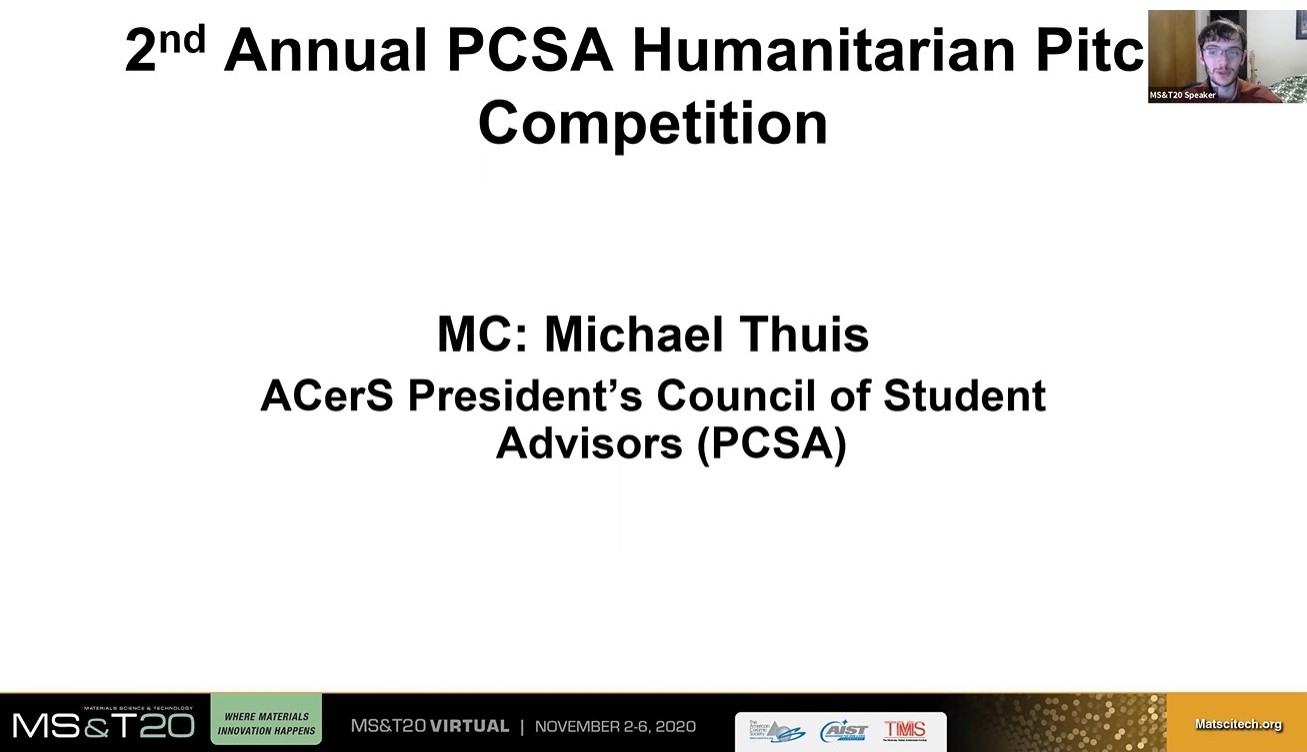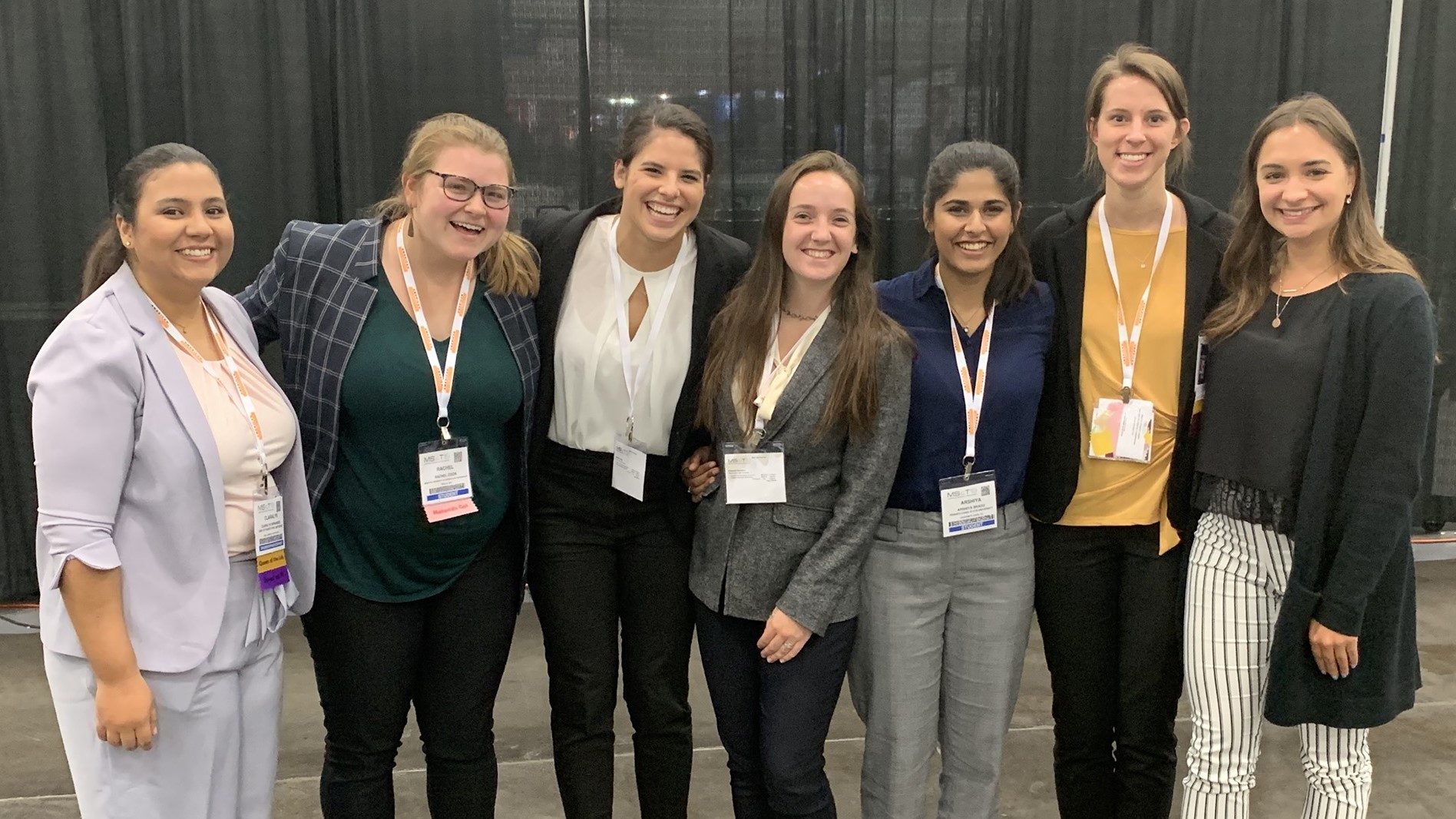Engineering for Humanity (EfH) and Humanitarian Materials Engineering (HME)
Engineering for humanity (EfH) is distinguished by its social agenda, particularly its focus on the service of marginalized community around the world. EfH defines and solves engineering problems while embracing constraints imposed by lack of access to resources and capacity commonly available to other engineering disciplines.
Over the last twenty years or so, organizations such as Engineers without Borders have popularized small-scale engineering projects in which multidisciplinary teams partner directly with marginalized communities to develop sustainable solutions that improve the ability of residents to attain life with human dignity.
Humanitarian Materials Engineering (HME) is a more recent development focused on the intersection of Materials Science and Engineering and Engineering for Humanity. It includes research and development as well as design but still concentrates on implementation that serves the needs of marginalized communities.
Like all materials science and engineering disciplines, its foundation is processing-structure—property relationships but it also has a strong component of field work. This direct experience or relationship with organizations that serve marginalized communities informs the work through knowledge of specific constraints that cannot be excluded from consideration. For example, humanitarian materials engineering would be more focused on the development of locally sourced, renewable materials for water treatment, sanitation, shelter or food security rather than on development of highly refined materials for mass production of consumer goods.
Purpose
The Humanitarian Activities Network (HAN) shall:
- Provide a forum for ACerS members interested in humanitarian activities to receive guidance,
share best practices, develop collaborations, and obtain support. - Promote the important role of ceramics and the ACerS in improving human health and wellbeing
through, for example, access to affordable shelter and clean water. - Provide a forum at ACerS meetings for education about, and promotion of, humanitarian
activities. - Coordinate ACerS activities with similar efforts led by other professional engineering societies
and non-governmental organizations. - Collaborate with the Presidential Council of Student Advisors (PCSA) to further humanitarian
efforts. - Collaborate with the CGIF to cultivate donors and support humanitarian projects.
2020 ACerS Humanitarian Engineering Symposium
A collaboration with the PCSA and the Basic Science Division has introduced the first Humanitarian Engineering Symposium for the Annual Meeting of the American Ceramic Society at MS&T 2020.
The PCSA successfully submitted the symposium proposal and the agenda has been organized as follows:
- Informed Research: the topic areas are alternative building materials and materials for water treatment.
- Entrepreneurship and Technical Development/Implementation
- Student Panel to discuss volunteer projects and opportunities for student involvement
These activities will be instrumental in engaging students and growing a diverse HAN community within ACerS.
ACerS Humanitarian Pitch Competition
The second annual Humanitarian Pitch Competition took place at the 2020 MS&T virtual conference. The PSCA organized the competition along with the HAN and secured prize money from CGIF.
See the 2020 Virtual PCSA Humanitarian Pitch Competition awardees below.

1st place:
H2Flow from Colorado School of Mines
Team members: Hunter Johnson, Annabelle Peterson, Christine Evans, and Matthew Tallant
Presentation title: Water Filtration through Concrete Filters
2nd place:
Ecotone Renewables from Carnegie Mellon University
Team members: Dylan Lew, Elliott Bennett, Kyle Wyche, and Robert Davis
Presentation title: Anaerobic Digestion Technology for Developing Island Nations
The PCSA will be organizing the third PCSA Humanitarian Pitch Competition that will take place in conjunction with MS&T 2021. Prizes will be given to the first top four proposals.
The first pitch competition took place at the 2019 ACerS Annual Meeting at MS&T 2019. The PSCA organized the competition and secured prize money from CGIF. The HAN co-chairs recruited judges for the Pitch Competition. The competition was a great success. Three teams entered the competition and it was notable that all three presenters were women.
See the 2019 PCSA Humanitarian Pitch Competition awardees below.

1st place:
The PSU Piezos from Penn State University
Team members: Elizabeth McIntyre, Isabella Urbina, Haley Myer, and Arshiya Bhadu
Presentation title: Piezoelectric Roadways: Implementing novel energy production technologies in new capital of Indonesia
2nd place:
Concrete Communities Construction Co. from Missouri University of Science and Technology
Team members: Rachel E. Cook, Austin J. Martin, Cambria Ryckman, and Nicholas Timme
Presentation title: Constructing Concrete Communities in Areas Affected by Natural Disasters
3rd place:
Aqua Nurture from University of Puerto Rico Mayagüez Campus
Team members: Amir R. Gómez, Claralys Hernández, William Crespo, and Angel G. Torres
Presentation title: Homegrown Sustainability
Making Clean Water Accessible Through Ceramics
The Making Clean Water Accessible Through Ceramics video offers an accessible introduction to the topic of waterborne diseases and low-cost ceramic water filters for all educational levels including K-12 and higher education.
This video was produced in collaboration with Cody Goddard and Professor Stephen Carpenter, Dean of the College of Arts and Architecture at Pennsylvania State University, and with funding from the Ceramic and Glass Industry Foundation (CGIF). Professor Carpenter has several years of experience in making ceramic water filters and incorporating them into educational programs.
2021-2022 Humanitarian Activities Network (HAN)
2020-2022 HAN Co-Chair
Ian Nettleship, University of Pittsburgh
2020-2022 HAN Co-Chair
Victoria Christensen, University of California, Santa Barbara
HAN STEERING COMMITTEE MEMBERS
Michael Alexander, Allied Mineral Products, Inc.
Amanda Krause, University of Florida
Geoff Brennecka, Colorado School of Mines
Kathleen Richardson, University of Central Florida
Jon Binner, University of Birmingham
Clive Randall, Pennsylvania State University
Michael Spencer, North Carolina State University
